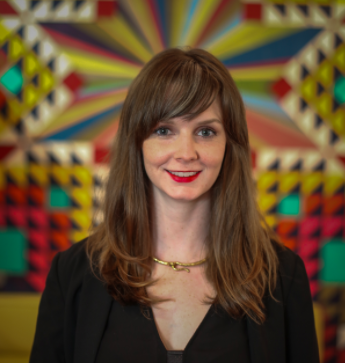Troy Wiggins said it beautifully in a recent Memphis Flyer column: “Artists set the tone for their cities’ cultural presence.” I couldn’t agree more, but I’m not here to present this issue to you again. I want to address the idea that there is some kind of irreconcilable divide between local and non-local art.

Lauren Kennedy
In my two years now at the helm of the UrbanArt Commission (UAC), I have heard many a frustration expressed about public art commissions being awarded to out-of-town artists. These frustrations are often coupled with concerns over scarcity of resources (similar to a competitive vibe you can find between nonprofit organizations sometimes) or assumptions that out-of-town commissions mean a lack of confidence or interest in local artists. I would like to share a different point of view.
Working with out-of-town artists does not have to happen at the expense of supporting the local art community. And it certainly doesn’t mean that Memphis is lacking in creative talent or ideas. It just means that we aren’t the only city making art.
I believe it in my bones that exposure to work made in different contexts and places creates a more dynamic and challenging art environment at home — an art scene that continues to grow and has conversations outside of itself. I also firmly believe that out-of-town artists working in Memphis grow from their time here and take something of this magical, weird place back home with them — a place about which I care very deeply. We are selling ourselves short to think that we can’t draw inspiration from and inspire others in such vital work.
Just a few points about our work through the city’s percent-for-art program that might be helpful:
• All of our calls are open to local artists.
• UAC maintains a commitment that 60 percent of city-funded projects are devoted to local artists.
• If you have never worked on a public art project or fabricated something large-scale, we encourage artists to partner with someone who does have that experience or skillset. Ask us how!
• UAC is not a voting entity on artist selection committees.
Beyond what we do through the city’s percent-for-art program — an important municipal investment in our public spaces — we are constantly asking ourselves how else we can support local artists. We are proud to work alongside ArtsMemphis and Crosstown Arts to offer free, monthly professional development workshops for artists to enable local folks to be successful in this field — in Memphis and across the country. In the same way that we want to engage nationally in the art world, we want to see Memphis-based artists taking on opportunities in other cities. But we have a lot of room to grow to help facilitate this.
UAC is committed to identifying new ways to support local artists through offering training opportunities, bringing local and national investors and their dollars into this work, and recognizing that there will always be room to do more and better. UAC, as well as other organizations, can also work more deliberately to make sure that local artists get opportunities to spend real time with people coming into our city. Asking folks with different expertise and practices to share with people while they are here will create an ongoing exchange that will, in turn, lift us all up.
In our current political climate — with our entire federal investment in the arts on the chopping block — it is counterproductive to pick apart any available arts funding or to isolate ourselves from dynamic and imaginative people and places. This is a moment to continue rallying together across the country to support every art community that could suffer from the defunding of the NEA and NEH.
Eileen Townsend wrote a column for the Flyer in 2015 called “Is Loving Local the Wrong Approach?” She punctuated her cheeky but thoughtful feature as follows: “We can love our Memphis roots without limiting the reach of our arts. The best way to choose 901, as far as contemporary art is concerned, is to know that the sphere of creativity is not delimited by I-240.”
It’s true. We need to support local art and non-local art, but we need to prioritize the work more than we do these lines of division.
Lauren Kennedy is the executive director of the UrbanArt Commission.